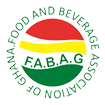- February 14, 2023
- Posted by: capello
- Category: News

Accra, Feb 8, GNA – Food and Beverage Association of Ghana (FABAG) has appealed to government to stop the proposed 20 per cent excise tax on sweetened fruit juice, spirits and water as that can aggravate challenges of the Manufacturing sector. “Manufacturers are already laboring under staggering multiple taxes, which has led to a massive decline in sales and are surprised that, instead of Government lessening these taxes, they rather decided to
increase same”. This was in their petition signed by Samuel Stop Aggrey, Executive Secretary of FABAG to Speaker of Parliament, Alban Sumana Kingsford
Bagbin and copied to Parliamentary Committees of Trade and Finance. The statement added: “It has come to our attention that the Minister of Finance has presented a proposal to the Parliament of Ghana to increase the excise duty on existing excised products and introduce same on new products including sweetened beverages and fruit juices.It said the Minister for Finance, explained that the purpose of the Bill was to among other objectives amend Act 878 to implement the ECOWAS Directive on the harmonization of excise duties and raise revenue to mitigate the harmful effects of excisable products.
The statement said although the manufacturing sector catered for about 35 per cent of the direct private labour force in the country, they were not consulted for their opinion on the potential effects and impact of the proposed tax on the industry.
“The Government just increased VAT by 2.5 per cent from 12.5% to 15% just last December in the Budget. Electricity and water tariffs effective 1st February, 2023 have also been increased by 30% and 48% respectively for industry. “The 30% discount we used to enjoy on raw materials imports have also been withdrawn. While we are yet to recover from these massive shocks, the Ministry of Finance has without any consideration to the plight of industry tabled this Bill to again increase excise duties which will definitely snowball the anticipated price increases by manufacturers”. The statement said apart from Nigeria which introduced excise duty on sweetened beverages and fruit juices in 2021 amidst fierce opposition, no other ECOWAS country had excise duty on sweetened beverages and fruit juices. “Even the rate in Nigeria translates to 2.4% on Ex-Factory and not 20% as being proposed in the Bill. The inclusion in the reasoning that sugar consumption is harmful hence the introduction of the duty is untenable and cannot be justified. For instance, when one looks at the World per Capita Consumption of sugar, Africa has the lowest of 15.3% and Ghana has 11.3%. The world’s average is 22.8. Evidently, the assertion that sugar consumption in Ghana is high thereby influencing introduction of excise duty on sweetened beverages and juices cannot be correct. Ghana’s sugar consumption ranks a low 124th out of 161 countries being tracked”.
The statement said the sweetened drinks were mainly patronized by children and as such any further increase in prices because of added taxes would make them totally unaffordable. The bare fact is that Government needs money, which we admit, but increasing taxes on already highly priced products would compel manufacturers to increase prices of their products which could lower patronage and lay off workers.
“Many of us in this sector are already considering our workforce under this high tax regime and will be forced to shut down if this proposed tax is passed by parliament due to its anticipated rippling effects on industry and when this happens, the economy may lose massively in terms of SSNIT, PAYE, Electricity and water bills payments, Salaries, withholding taxesand all other contributions that we make to the State. Indeed, we cannot wait for the woes of a pending social and economic disaster, when we can prevent it from happening, “Mr. Speaker, it is our sincere plea that, you consider our prayer and halt the passage of this bill for further deliberations. We are available for further deliberations.”
GNA
